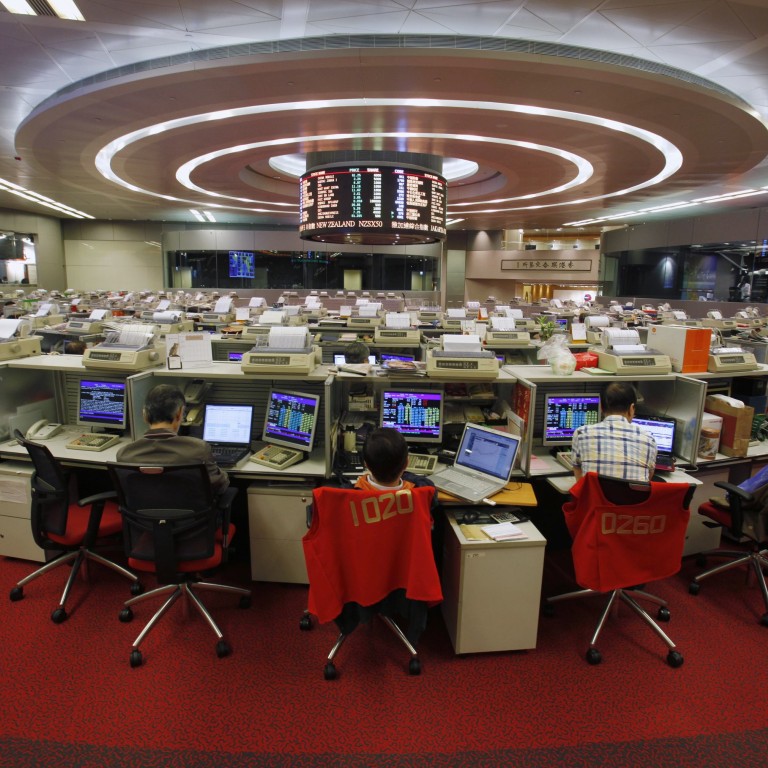
Shell games hide an ugly side to otherwise legitimate listings
The percentage of new issues that smell like shells has doubled in the past two years, thanks to the suspension of listings on the mainland
Shells were the flavour of this Lunar New Year season gatherings - not dried abalones and oysters, but the corporate variety bought and sold in stock markets.
Peter recently sold his listed company for over HK$300 million. As friends toasted his new wealth, he had a confession. "I actually pocketed much less than that," he said.
A large chunk of the price tag was apparently cornered by the professional shell farmers who brought in the intermediaries, packaged Peter's small but clean business, arranged the listing and found a buyer for the company.
George was close to his fortune. Hours before the placement of his company's GEM board listing, his sponsor asked: "Are you interested in selling the whole thing? One of my clients is very interested." George declined the offer.
John is helping his friend to grab a windfall by becoming an independent director of the latter's firm for its listing. "A respected director helps in getting a quick approval," he said. His friend has already lined up a buyer for the soon-to-be-listed shell.
The buzz over shells at festive dinner tables is no coincidence as far as empirical evidence, from the 2012 and 2013 initial public offerings on the main board, goes. The percentage of new issues that smell like shells has doubled in the past two years, thanks to the suspension of listings on the mainland and a new law that holds sponsors criminally liable for frauds.
It is, however, impossible to say for sure which IPO is indeed a shell. But Juda International and Vision Fame, which were sold to mainland investors within 15 months of their listing, provide some pointers to detecting shells. There are six features in particular that narrowed down for a foolproof shell test.
One, a shell is valued at no more than HK$400 million upon listing. That makes sense given a shell is normally sold at around that price. Juda's market capitalisation is HK$300 million and that of Vision Fame, HK$400 million.
Two, the result is a small fundraising size and a listing expense that takes up more than a quarter of the listing proceeds. Juda and Vision Fame paid 25 and 53 per cent of their proceeds, respectively, to their bankers, lawyers and auditors.
Three, a shell will have its main shareholder control more than 70 per cent of the company. That makes it easy to sell. Both the above-mentioned companies had a shareholder controlling 75 per cent of the shares.
Four, a shell has been operating a single and simple business earning between HK$50 million and HK$100 million over three years. That's just enough to meet the minimum listing requirement. Juda made HK$64 million while Vision Fame earned HK$98 million before listing.
Five, a shell has little or no assets or loans and a gearing ratio under 20 per cent. Shell buyers hate to deal with assets and loans. Juda's gearing was 0.64 per cent while Vision Fame's was 16 per cent.
And six, a shell pays dividends before listing - to reduce assets. Vision Fame paid out HK$105 million, or HK$3 million more than what it raised via listing. Juda paid HK$24 million.
Screen the recent IPOs with these six parameters and you'll see shells popping up. There were 16 shells in the 89 listings last year, nearly 18 per cent, compared with 8.5 per cent in 2012. Only four out of the 47 IPOs that year passed the shell test. So why do we care?
Let's put aside the discussion of whether a prospectus should make promises that one doesn't mean to deliver. Let's also not go into the abnormalities intrinsic to shells, such as high share concentration from day one of listing and a profit warning immediately after to shake off genuine minority shareholders.
The real question to ask is, what is the purpose of a listed shell? The answer: it provides quick market access to legitimate businesses. Most of the time it is also a platform for the back-door listing of a business that would have little chance of passing the stringent vetting process associated with a regular IPO.
In the past two years, the market has witnessed more than 50 back-door listings. Many are structured to avoid scrutiny, putting investors at risk.
There has been a listing of a company with a profit-sharing agreement with a casino junket, which would have faced serious disclosure and money laundering concerns had it been a regular IPO. Then there is the instance of a dozen microfinance companies from the mainland that listed via shells with hardly any disclosure.
Listed shells also serve other purposes. For a handsome fee, an owner can rent out the shell to "a buyer".
The buyer's stripes vary depending on what's hot at the time. If the raw material theme seems to be investors' favourite, the buyer will call itself a miner. If it's mobile app companies, the buyer will be an internet firm. As the stock trades up in anticipation of the purchase, the shell owner and buyer will make a neat pile. Months later, the deal will be cancelled, pending another "buyer".
Shell farming may appear innocuous but scratch the surface and it's not that pretty any more.

